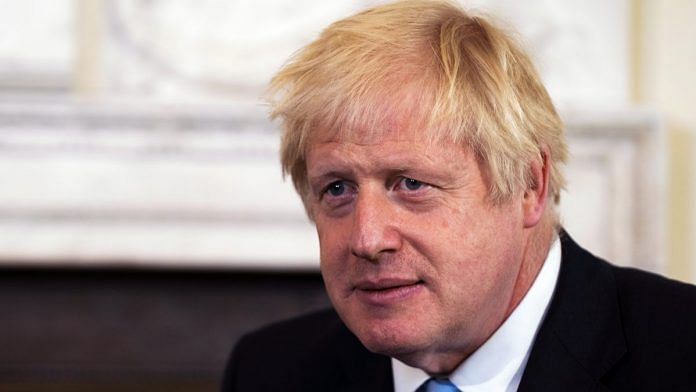New Delhi: An 11-member Supreme Court bench in the United Kingdom Tuesday unanimously ruled that Prime Minister Boris Johnson’s decision to suspend Parliament for five weeks was “unlawful”.
Supreme Court’s president Lady Hale said, “The effect on the fundamentals of our democracy was extreme.”
The court noted that the decision to suspend the House was now “null and of no effect” and it is now up to the Speakers of the House of Commons and House of Lords to decide the future course of action.
“The court has quashed both his advice to the Queen and the Order in Council which officially suspended Parliament. That means Parliament was never prorogued and so we assume that MPs are free to re-enter the Commons,” noted Clive Coleman, BBC’s legal affairs correspondent.
Responding to the verdict, Downing Street, which is the prime minister’s office, said it is “currently processing the verdict”.
Also read: Mecca of parliamentary democracy in ‘constitutional coup’ as Boris Johnson suspends House
Why was the suspension order controversial?
On 29 August, Johnson suspended the House for five weeks and Parliament was supposed to remain suspended until 14 October.
Suspending or proroguing essentially means that the Parliament is suspended, but not dissolved, and MPs go on a recess during this period.
Two reasons, however, made Johnson’s decision to suspend the House extremely controversial.
First, in recent British parliamentary history, there is a precedent for an annual fall-time recess that traditionally lasts for only three weeks. But Johnson had suspended Parliament for five weeks.
Second, and more importantly, the decision to suspend Parliament came at a time when the UK is nearing the Brexit deadline. The stipulated deadline for the UK to leave the European Union (EU) is 31 October. And, in case, the UK and the EU fail to reach a consensus on a deal by then, then Britain would have to come out of the EU without a deal.
This second aspect became deeply controversial. Speaker of the House of Commons John Bercow had termed it a “constitutional outrage”. An editorial in the Financial Times noted, “The seat of British democracy, long admired worldwide, is being denied a say on the most consequential decision facing the country in more than four decades.”
Johnson’s suspension order was even challenged in the top courts of England, Scotland and Northern Ireland and eventually found its way to the UK’s Supreme Court.
‘No justification for taking action with such an extreme effect’
While declaring the verdict, Lady Hale said: “The decision to advise Her Majesty to prorogue Parliament was unlawful because it had the effect of frustrating or preventing the ability of Parliament to carry out its constitutional functions without reasonable justification.
“There is no doubt that the courts have jurisdiction to decide on the existence and limits of a prerogative power,” remarked Hale.
“No justification for taking action with such an extreme effect has been put before the court…” she added.
What happens now?
The Supreme Court’s decision effectively means that the Parliament is, in theory, free to resume its proceedings.
Reacting to the verdict, Bercow said the Parliament “must convene without delay”. He further added he would now be consulting the party leaders “as a matter of urgency”.
Although Johnson’s office is currently processing the verdict, his ministers had earlier told the media that they would be abiding by the Supreme Court ruling.
Johnson, meanwhile, had said that he would like to wait for the top court to deliver its verdict first before commenting on what his future course of action would be. The PM is currently in New York to attend the UN General Assembly.
Also read: Boris Johnson should know destroying parliaments has led to war




QE II is such a constitutionally correct monarch, she must have bitten her tongue while signing off on the decree to prorogue Parliament. She understands the perils of a titular head of state overruling a democratically elected PM. Also had the confidence that the system is robust enough to redress a wrong decision, as the Supreme Court has done.